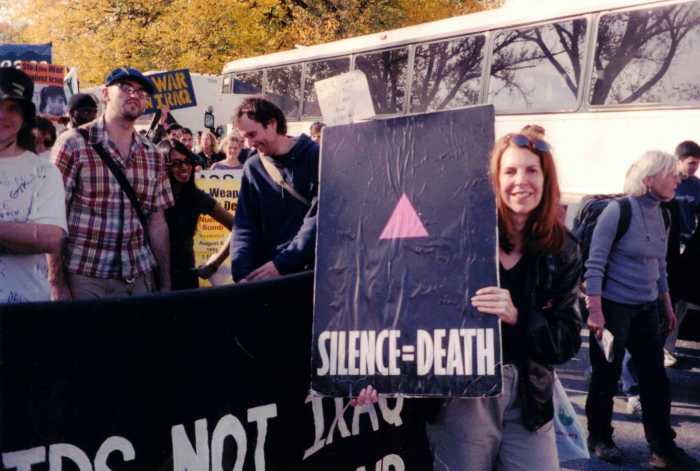Fliers with the eye-catching title “This is what rape culture looks like” popped up all over University of Pennsylvania’s campus earlier this week, apparently in response to an emailed invitation to a party. The text of the email invitation to a party called “Wild Wednesday” says that girls are invited to a party, but not “teases,” and urges female guests to “please wear something tight.” “We are watching” is written in caps at the bottom of the letter.
“May we have your attention please/We’re looking for the fun ones/And say f—k off to a tease,” states the invitation, written in the form of a poem and sent by the off-campus organization OZ. “Add this to the ever growing list of how to feel unsafe on this campus… to say that this is unacceptable would be a gross understatement,” wrote UPenn student Clare Connaughton on Facebook after posting the flier. “To send this to freshmen girls who are already at their most vulnerable, barely a week into the semester?”
A group of young female students created and posted the fliers, which are signed off with a hotline for victims of sexual assault to reach counselors at the Penn Women’s Center.
Amanda Silberling, a UPenn junior who helped post the fliers, told school newspaper the Daily Pennsylvanian, “We want freshman girls to see the signs we put up and know they don’t have to give in to the culture they’re thrown into.”
She and friends printed up 600 copies of the flier after a female freshman sent the email to Silberling, she said.
A 2015 study by the American Association of Universities polled UPenn and found one-third of women reported being sexually assaulted.
“The text of the email was offensive and has no place at Penn,” UPenn said in a statement. “As the University has made clear in its policies and protocols, sexual harassment and sexual assault are unacceptable and will not be tolerated on campus. Challenging offensive speech, as these students did, is important and wholly consistent with the University’s ongoing efforts and the national conversation about preventing and responding to sexual misconduct.”
































